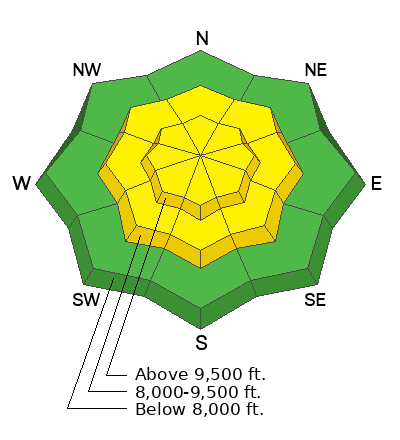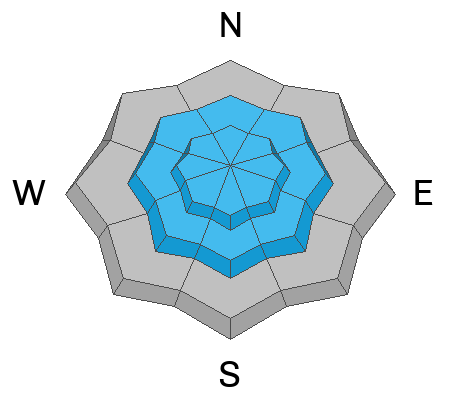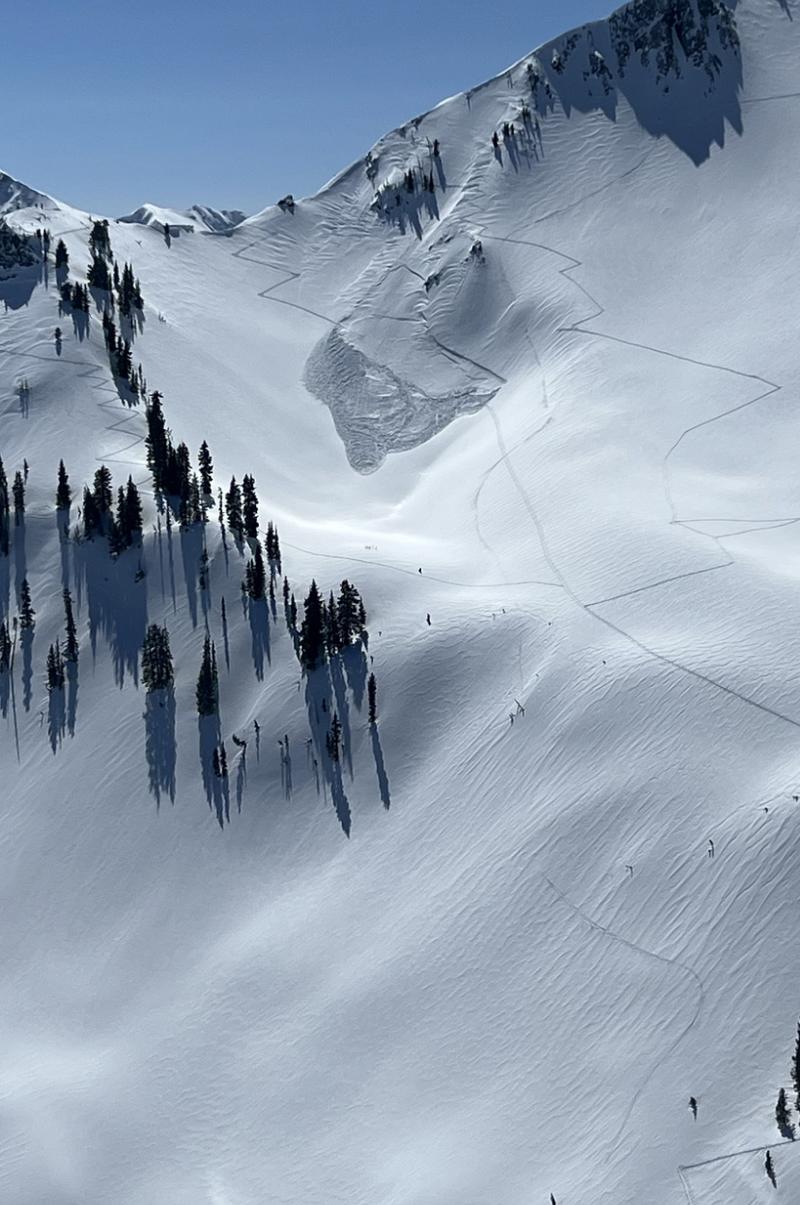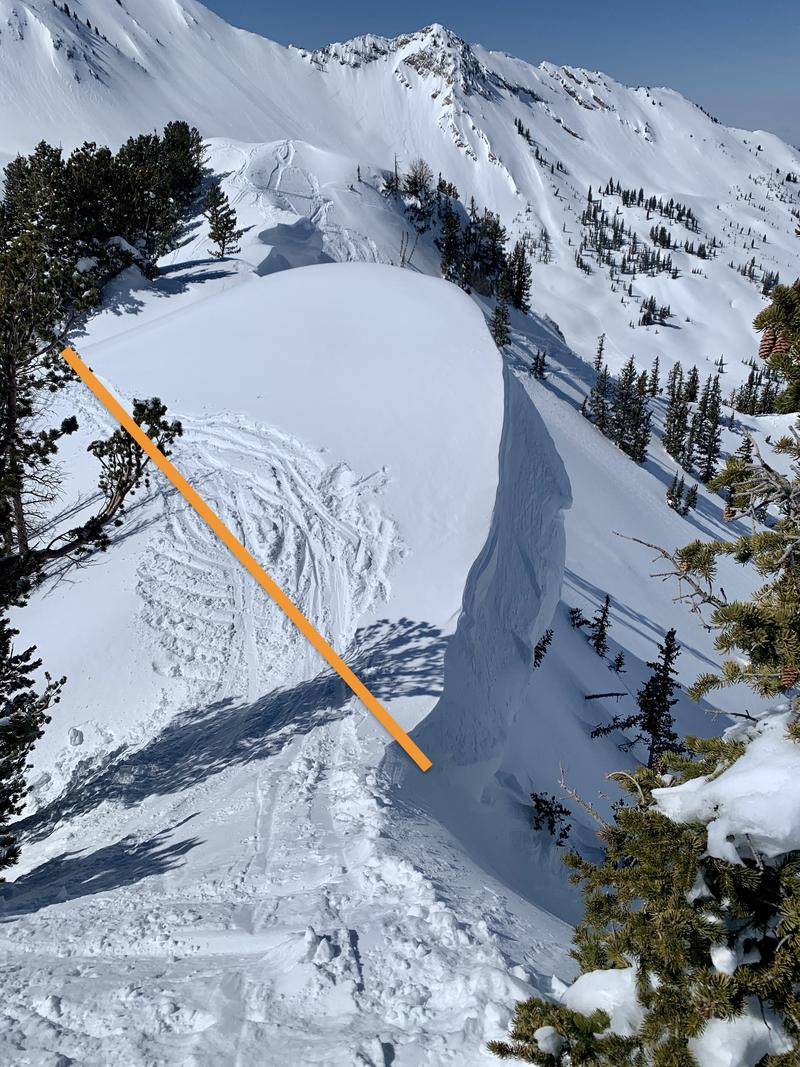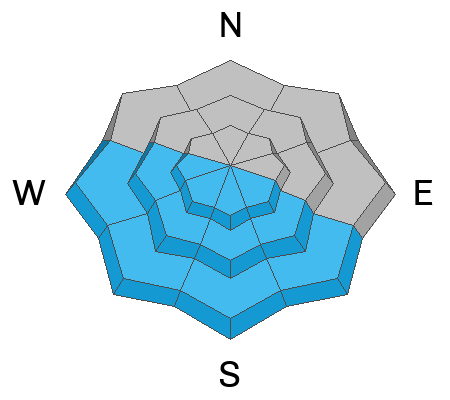This morning: Skies are clear and temperatures are 10° to 15° F. Winds are generally from a south/southeast direction and light, around 10 mph, but there was a period overnight with gusts into the 20's mph at the upper elevations.
Today: Temperatures will rise into the upper 20's and low 30's F and the east/southeast winds will remain light, gusting into the teens at the upper elevations. Skies will be mostly sunny.
Looking ahead: Skies will cloud over on Sunday and winds will increase, ahead of a storm late Sunday and into Monday. A possible break on Tuesday before yet another storm for late this coming week.
Many southerly-facing slopes will have a crust from sunshine the past two days.
Additional reports of the widespread natural avalanche cycle that occurred Wednesday through Thursday morning continue to roll in and you are encouraged to read through all
observations and
recent avalanches.
The most notable skier-triggered avalanche I've heard of from Friday was on
Lake Chute, an east-facing slope at 10,700' on Lake Peak in White Pine that was 12" deep, 50' wide, and ran 800' vertical:
On Wednesday in the town of Alta, a child playing with a group of friends in the snow was buried underneath an avalanche that came down from a steep roof above. Fortunately, through an efficiently-organized recovery effort,
the child was dug out and survived. These are appropriately called "
roof-a-lanches" and will remain a hazard in our mountain communities this Spring. Do not let children play in the snow underneath steep roofs filled with snow. Please share this message.

